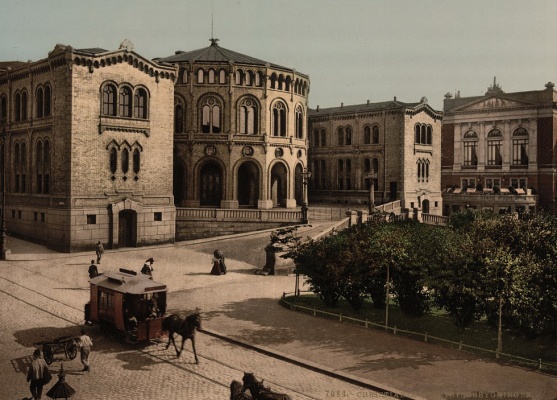General Kornilov's plan was to strike north-west through Nadworna. He did not believe in piercing the Carpathians. Neither did the troops. One of the men of a unit in the Carpathians said to him : “ Mr. General, we will attack, only this place is not convenient for attacking. If we take a mountain, there is always another in front of us, and there is no end and no profit in it.”
Here in the far south there were fewer complaints of the visits of agitators which so plagued the Northern Front, but officers spoke of the evil influence of the Left papers. The Colonel of the Engineer Regiment of the Xlth Corps said that his men subscribed for ten copies of the Pravda, and received forty additional copies free, and the men who could read to a certain extent —perhaps 20 per cent, of the rank and file—had been so long accustomed under the strict censorship of the old regime to regard the printed word as of guaranteed truth, that they believed all they read”.
The air in Petrograd is toxic with the fumes of words and the fog of anarchic thought. How easy it is to be a demagogue. How easy it is to whip up the crowd. Leaving Petrograd you realize the danger, the shame, the sadness and madness of it all. One must be brave; one must keep one’s faith.
Almost every day additional newspapers appeared in Moscow, often with the most unusual ideologies, right through to theosophy and anarchism. One paper advocating the latter was printed with the slogan “anarchy is the mother of order”. See more
It’s Trinity Day. Every decent restaurant is closed. I had a horrible dinner and went to see Filippov for hot chocolate. Suddenly someone calls me. -– It’s Kamenev! Purely by chance. A little of this, a little of that. "Let's go to the Soviet." Today, Minister Kerensky is giving speech and trying to defend himself from the leftwing "attacks." So I went. See more
The entire front was awash with the most desperate propaganda. Meetings are endless. This propaganda, of course, has had its desired effect. Which is hardly surprising: the soldiers have sat tired and hungry for months in the trenches, when someone comes along and says “go home, the land will be yours, the factories will be yours. A new life is beginning”.


Milyukov accuses us of being agents and hirelings of the German government. From this tribune of revolutionary democracy I appeal to those of honesty in the Russian press to broadcast my words: until that time when Milyukov sees fit to take back his words, let his forehead be branded with the stamp of the dishonest slanderer.
It cannot be denied that here, in the Urals, the workers are more ready to take control of their enterprises that they are in any other place. Even last year I was delighted by the extent to which their intellectual abilities have developed, and the particular character of those craftsmen whose ancestors had not experienced the yoke of serfdom.